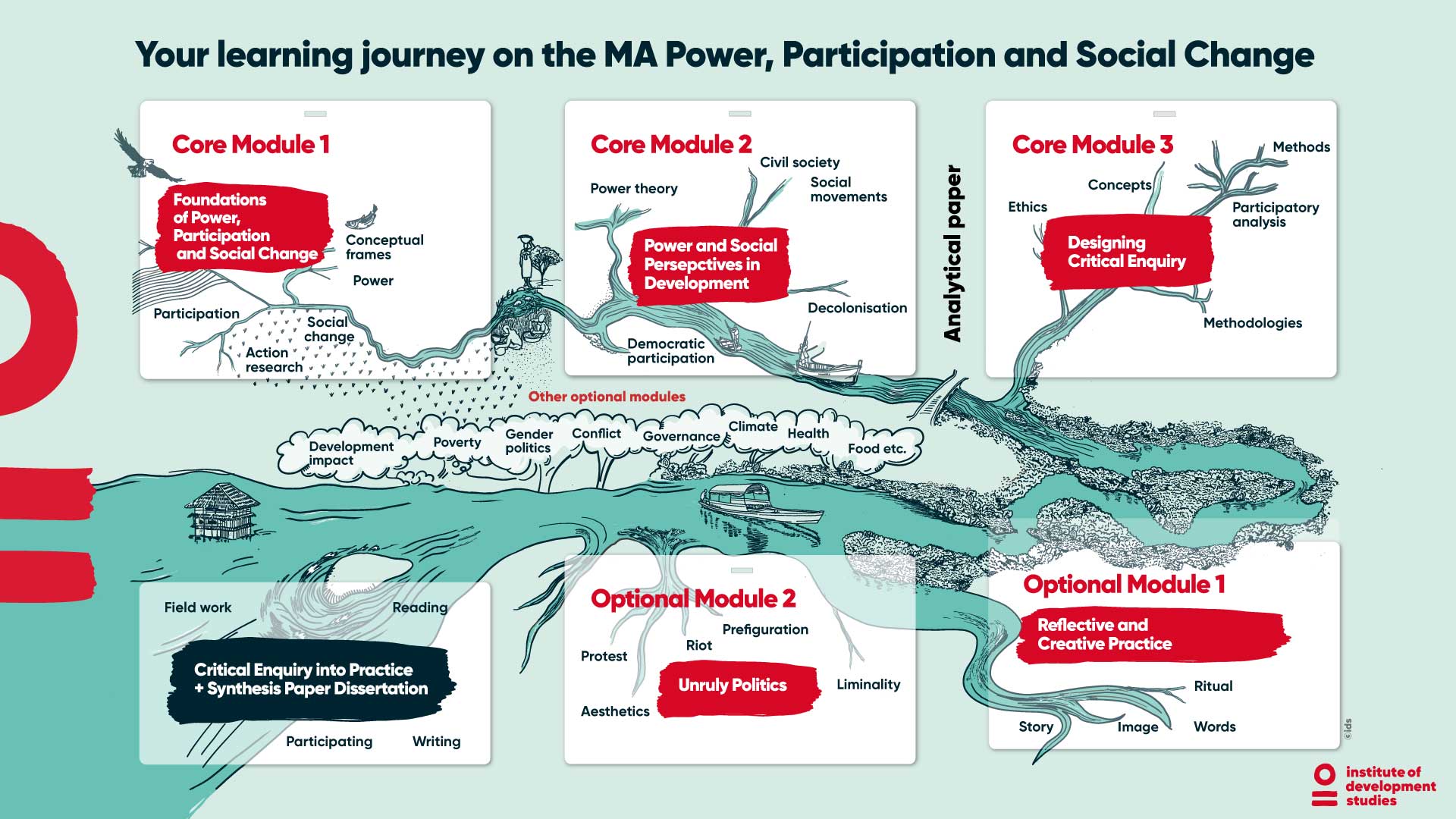Achieving social justice in a rapidly changing and increasingly unequal world is a major challenge. On this MA, you’ll tackle this challenge so you can contribute to positive change.
On this course you’ll learn to articulate your understandings of power and participation. You’ll have the opportunity to connect what you learn to what interests you most in the social change arena.
This MA is for you if you’re an aspiring or experienced development practitioner, social activist or professional with some background in social change action through work volunteering or activism.
During your studies, you’ll gain skills, develop ideas and learn methods that help you to:
The Institute of Development Studies (IDS) delivers world-class research, learning and teaching that transforms the knowledge, action and leadership needed for more equitable and sustainable development globally. IDS has been ranked first in the world for development studies, in partnership with the University of Sussex, for eight years running.
This MA is for aspiring and experienced development practitioners, social activists, and professionals. Whatever your level of formal experience, we expect you to bring some personal background in social change action, gained through work, volunteering or activism, which you wish to reflect on and analyse during the course. You will also have an interest in critical academic enquiry.
The structure of the degree combines academic study, practical engagement, and individual and group reflection. Two terms on campus at Sussex are followed by a period of action research fieldwork, working with an organisation, a peer group, or in a volunteer setting of your choice. You will be responsible for locating and setting up this engagement.
The campus-based modules emphasise personal and group learning and reflection, critical thinking and theoretically informed analysis, egalitarian dialogue, respect for diverse viewpoints and forms of knowledge, and appreciation of the complexity of global issues.
Core modules are taken by all students on the course. They give you a solid grounding in your chosen subject and prepare you to explore the topics that interest you most.
Alongside your core modules, you can choose options to broaden your horizons and tailor your course to your interests. This list gives you a flavour of our options, which are kept under review and may change, for example in response to student feedback or the latest research.
While it’s our aim for students to take their preferred combinations of options, this can’t be guaranteed and will be subject to timetabling. Options may be grouped and if so, students will be able to choose a set number of options from the selection available in any particular group.
The academic year commences in September. There are two taught semesters (Semester 1 runs from September to January; Semester 2 is from January to May) followed by a period for individual work which runs from May to September. In this summer period you will undertake your and, with supervision support from an experienced faculty member, write a 15,000-word paper that synthesises your learning over the year.
Part-time students will take in their first year the core module Foundations of Power, Participation and Social Change in Term 1, and an elective module in Term 2. In your second year, you will take Power and Social Perspectives in Term 1 and Designing Critical Enquiry (the methods module) in Term 2 and carry out your action research fieldwork between April and August.
The links below will take you to the University of Sussex’s website to find out more about each module.

We’ll make all reasonable efforts to provide you with the courses, services and facilities described in this prospectus. However, we may need to make changes due to significant disruption, for example in response to Covid-19.